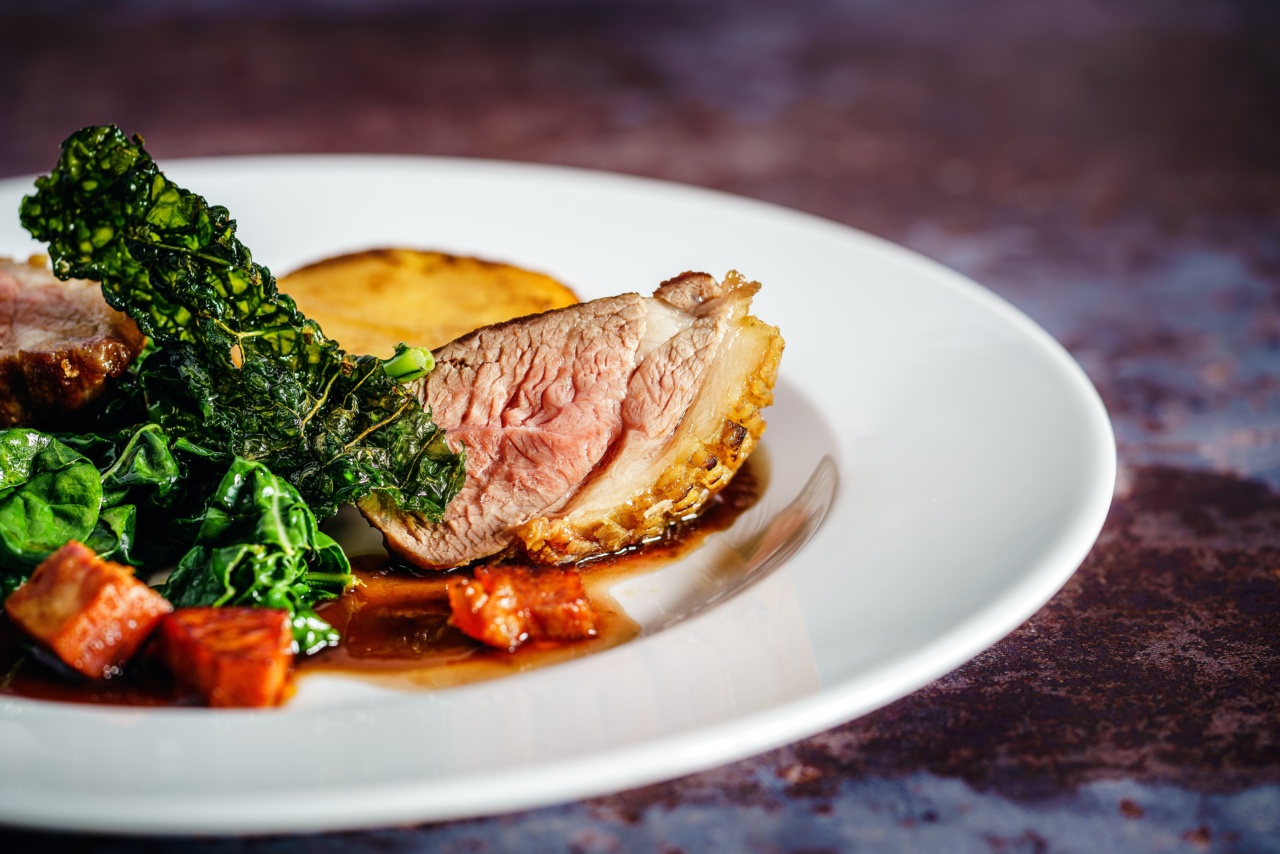When it comes to breast cancer prevention, there are various lifestyle factors that can play a significant role in reducing your risk.
One of these factors is your diet, and making smart choices about the foods you consume can greatly impact your overall health. In recent years, research has suggested a potential link between consuming red meat and an increased risk of breast cancer.
In this article, we will explore the connection between red meat and breast cancer and discuss tips on how to reduce your breast cancer risk by avoiding red meat.
The Link Between Red Meat and Breast Cancer
Several studies have indicated that a high intake of red meat, particularly processed red meat, is associated with an increased risk of breast cancer. Red meat is rich in saturated fats and certain compounds that can promote inflammation in the body.
These factors have been linked to the development of various cancers, including breast cancer.
A study published in the International Journal of Cancer found that women who consume a large amount of red meat have a higher risk of developing hormone receptor-positive breast cancer, which is a common type of breast cancer.
Another study published in the Archives of Internal Medicine found that postmenopausal women who consume high amounts of red and processed meats have a 20% higher risk of developing breast cancer compared to those who consume lower amounts.
Tips for Reducing Red Meat Consumption
If you are looking to reduce your breast cancer risk by avoiding red meat, here are some helpful tips:.
1. Replace Red Meat with Lean Protein Sources
Instead of relying on red meat for your protein intake, consider incorporating lean protein sources into your diet. Opt for skinless chicken, turkey, fish, or plant-based proteins like tofu, legumes, and quinoa.
These alternatives are lower in saturated fat and can provide you with the necessary nutrients without increasing your breast cancer risk.
2. Embrace a Plant-Based Diet
A plant-based diet has been associated with numerous health benefits, including a reduced risk of cancer. Focus on consuming a variety of fruits, vegetables, whole grains, and nuts.
These foods are rich in antioxidants, vitamins, and minerals that can help support your immune system and reduce the risk of breast cancer.
3. Practice Portion Control
If you still want to include small amounts of red meat in your diet, it’s essential to practice portion control. Keep your portions small and prioritize lean cuts of meat.
Limit processed meats such as sausages, bacon, and deli meats as they have been linked to an increased risk of cancer.
4. Read Food Labels
When shopping for groceries, be sure to read food labels carefully. Look out for processed meats and products that contain red meat as an ingredient. Opt for healthier alternatives whenever possible.
5. Incorporate Alternative Protein Sources
As mentioned earlier, there are numerous alternative protein sources available. Experiment with tofu, tempeh, legumes, and even meat substitutes like seitan or soy-based products.
These options can diversify your diet and provide you with the protein and nutrients you need while reducing your red meat intake.
6. Plan Your Meals
Planning your meals in advance can help you avoid relying on red meat for convenience. When you have a well-thought-out meal plan, you will be less likely to reach for red meat as a quick option.
Prepare meals in bulk, try new recipes, and discover plant-based alternatives that you enjoy.
7. Opt for Healthy Cooking Methods
The way you cook your food can also impact its overall healthiness. Instead of frying or grilling red meat, consider healthier cooking methods like baking, steaming, or poaching.
These methods retain more nutrients and reduce the formation of potentially harmful compounds.
8. Educate Yourself
Stay informed about the latest research on diet and breast cancer. By educating yourself on the potential risks associated with red meat consumption, you can make informed decisions about your diet and reduce your overall breast cancer risk.
9. Talk to a Registered Dietitian
Consulting with a registered dietitian can provide personalized guidance on reducing your breast cancer risk through dietary choices.
They can help you create a meal plan that suits your individual needs and preferences while ensuring that you obtain the necessary nutrients.
10. Practice a Balanced Lifestyle
Reducing your breast cancer risk is not solely dependent on avoiding red meat. It’s important to maintain a balanced and healthy lifestyle overall.
Regular physical activity, maintaining a healthy weight, limiting alcohol consumption, and avoiding smoking are also essential factors in reducing your risk of breast cancer.
Conclusion
While the connection between red meat consumption and breast cancer risk still requires further research, it is clear that choosing healthier dietary options can contribute to overall breast cancer prevention.
By avoiding red meat and incorporating lean protein sources, embracing a plant-based diet, practicing portion control, and making informed choices about your food, you can reduce your breast cancer risk and lead a healthier life.































